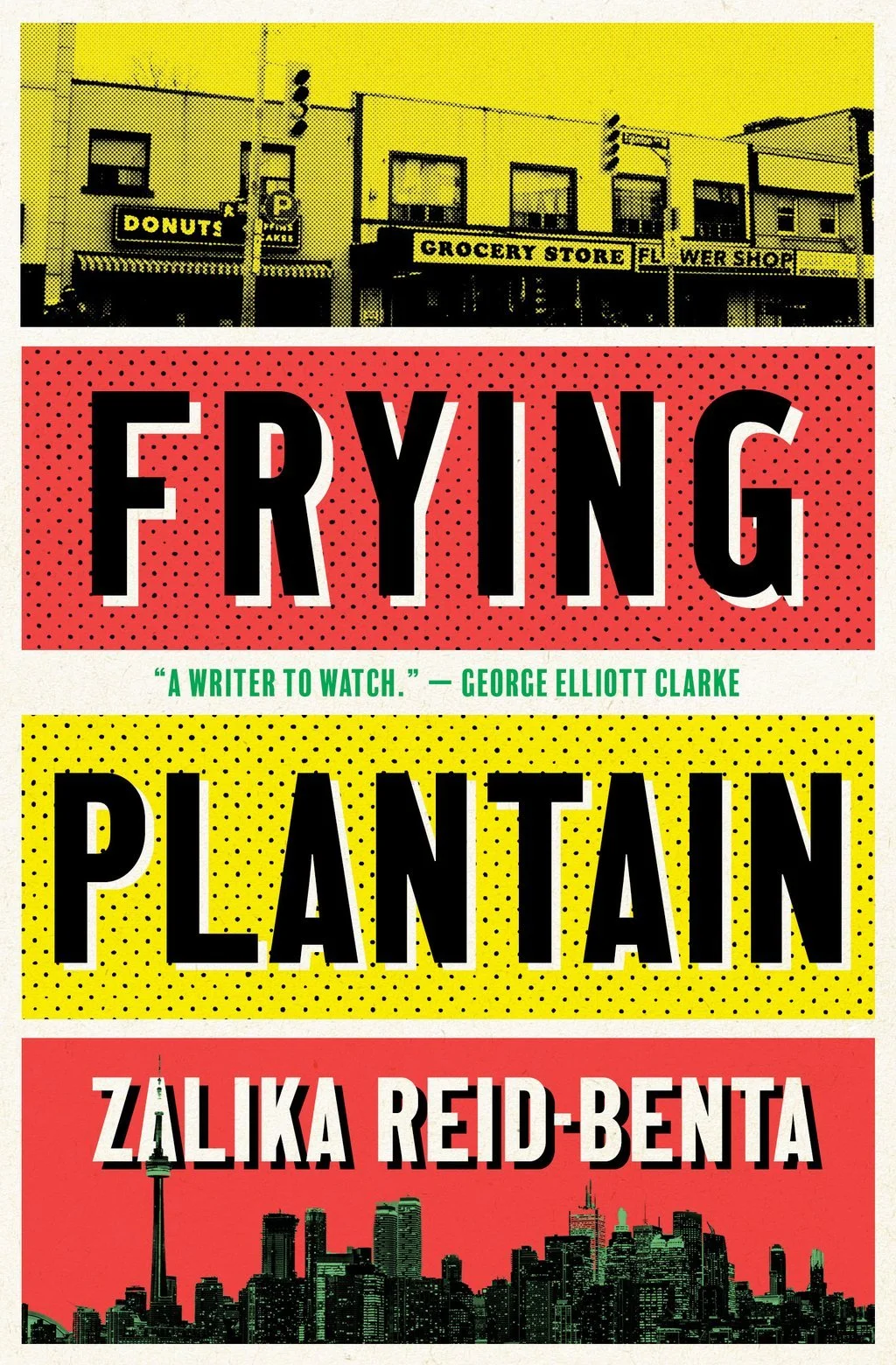Chidera Ukairo Reviews Zalika Reid-Benta’s Frying Plantain
Zalika Reid-Benta. Frying Plantain. House of Anansi. $19.95 CDN, 272 pp., ISBN 9781487005344
Zalika Reid-Benta’s debut novel, Frying Plantain, follows the coming-of-age story of Kara Davis, a second generation Canadian with a Jamaican heritage. Set in “Little Jamaica,” the Eglinton West neighbourhood of Toronto, the novel is a series of 12 linked short stories that chronicle Kara’s growth from a young girl in elementary school to a university student. Kara’s journey is one that navigates the complexities of living in two vastly different worlds and cultures. She struggles with her identity as she tries to reconcile her Canadian nationality with her desire to be a “real” Jamaican. She avoids confrontation at home in an attempt to maintain peace while coping with the explosive nature of the relationships within her family. As I read Frying Plantain, I saw Reid-Benta mindfully illustrate a plethora of themes from growth and belonging or the lack thereof, to love, connection and tense relationships.
The first chapter, “Pig Head,” introduces us to Kara’s struggle with her identity and sense of belonging. This theme shows up in many forms and extends itself throughout the novel. During her first visit to Jamaica, Kara feels like an outsider as she tries to connect with her cousins, her home and a way of life she’s never lived:
“For the first three days of my visit, they [her cousins] would at least tease me, broad smiles stretching down their cheeks…I’d fuss and grumble, piqued at the taunting but grateful for the inclusion, for being thought tough enough to handle the same mockery they inflicted on each other.”
Despite doing her best to fit in, Kara’s family begins to push her away after she has a frightened reaction to her cousin using his bare hands to kill a chicken for a meal, an act considered no stranger than drinking water. After that, “they didn’t goad [her] anymore and only approached [her] for games they thought Canadian girls could stomach.” Kara’s longing for acceptance transcends home as we see her alter the details of her time in Jamaica to her neighbourhood friends in Canada. To them, she never mentions screaming and even goes as far as telling them that she had killed a pig herself. Reid-Benta invites readers to understand the plight of not feeling enough, of having two homes but being a visitor in both. These feelings are ones I and many readers who are from immigrant families or culturally diverse backgrounds intimately recognize.
Reid-Benta’s illustration of romantic and familial love is multi-faceted and brilliant. While Kara’s first kiss at sixteen and first boyfriend at seventeen open the door to her exploration of love, sexuality, and romantic relationships, the experience goes beyond this and illuminates the complicated love she shares with her mother, Eloise. One of the first few things Kara wants to do after her first kiss is discuss love with her mother, but she can’t. She keeps her first boyfriend a secret for fear of the retribution she will face if her mother were to find out:
It’s my boyfriend. Maybe if I say it casually, like I expect her to be calm and not respond with homicidal rage. No, it won’t work. That nonchalance is too Canadian. Too much like the kids I go to school with. Too white.
Reid-Benta doesn’t paint Eloise as an unreasonable mother but as one simply operating from her own personal experience as a single mother who had Kara at seventeen. I saw beyond Eloise’s consistent cautioning about boys. I saw a mother trying a little too strongly to save her daughter from suffering her own fate. Boy issues are only one part of the difficult relationship between Kara and her mother. Although both Kara and Eloise live in the same Jamaican-Canadian neighborhood, Kara leans closer to her Canadian side, while Eloise maintains a rigid attachment to her Jamaican values. This divide makes connecting with her mother an often-impossible task to accomplish. The distance between them grows every time Eloise scrutinizes what Kara says, does, and wears.
Frying Plantain asks readers to consider that love doesn’t always look the same, that sometimes it’s encased in a hard shell and takes time to reach. At the same time, the book also shows readers that there are instances where love simply isn’t love. The title of the seventh story, “Stand Off,” describes the relationship between Kara’s grandparents. During one of their fights, Kara’s grandmother, Nana, tells her that she “would rather die than talk to that man [her grandfather].” Between Eloise and Nana is yet another volatile relationship, one that has suffered for years from an inability to coexist peacefully for long stretches of time.
My favourite thing about Zalika Reid-Benta’s Frying Plantain is that it is a testimony to the Black experience that exists outside of race. When you zoom out of the stories and take a distanced look at this work, what you see beyond the themes addressed is Black people being. Here, in these 12 stories, are Black people loving, hurting, making mistakes, yearning to belong to friendship groups, growing, learning – being.
Chidera Ukairo is a writer, book lover and film enthusiast. Her essays, book and film reviews have appeared in the Globe and Mail, the Hamilton Review of Books, Trad Magazine and Shameless Magazine. You can find her on Twitter.


